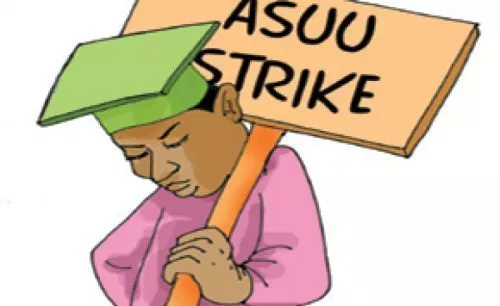Lassa, a one-time Deputy Vice-Chancellor, Administration of the University of Jos, said this while reacting to the ongoing strike by university lecturers in an interview with News Agency of Nigeria (NAN) on Monday in Jos.
According to him, many Nigerians seek admission into universities in neighbouring African countries, not because of the superiority of their academic programmes, but the stability of their academic calendars.
READ ALSO :WWD: Group urges Plateau Govt. to prioritise access to clean water, sanitation
He noted that the incessant strikes had affected teaching and learning and had led to the colossal falling standard of education in the country.
The Don decried that the uncertainties in Nigerian universities had denied students the opportunity to graduate as and when due, owing to unnecessary delays occasioned by frequent strikes.
“Frequent strikes have affected teaching and learning and as a result, we are seeing the falling standard of graduating students from the universities.
“Strike often forces teachers to condense the time table of courses and rush the students to the examination.
“When the curriculum says three-credit courses require three hours of lectures spread over a week for students to assimilate, but when a lecturer condenses a lecture, that leads to the half-baked student.
“Today, students in Nigerian universities hardly know when they will graduate and some of these uncertainties make many students prefer universities in neighbouring African countries.
“This is not because of the superiority of their academic programmes, but the stability of their academic calendar. These students go abroad because our universities have failed to meet their aspirations,” Lassa said.
He further decried the psychological effect of the strikes on the students, adding that the consequences usually faced by students and their parents were largely enormous.
He also said that strike actions by lecturers often led to huge economic loss, as bills for services provided were still being paid by the government without being adequately utilised.
“During strikes, universities are shut down; the staff demand that they are paid salaries. During the several months, they are on strike the universities still run and pay for services, such as power, water, security and also take care of buildings.
“One month strike by a public university is estimated to be a huge loss amounting to billions. This is really not good for us.
“The students also go through some psychological trauma and the effect is mostly enormous,” the don decried.
He called on the ASUU and government to seek other alternatives to resolving such disputes.



Leave a Reply